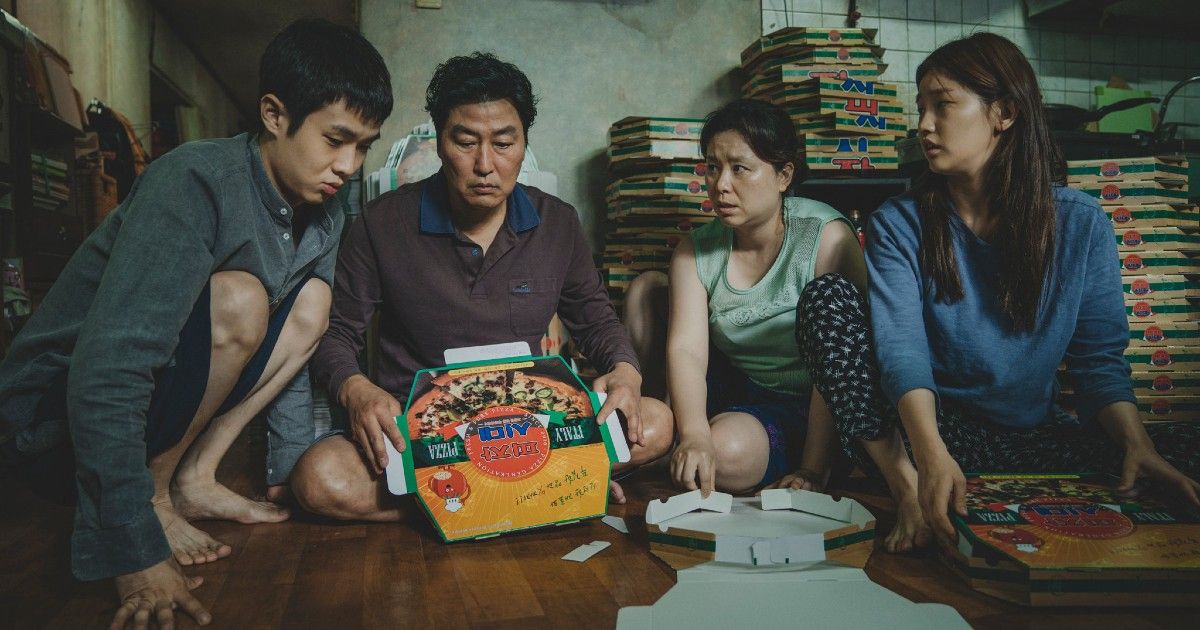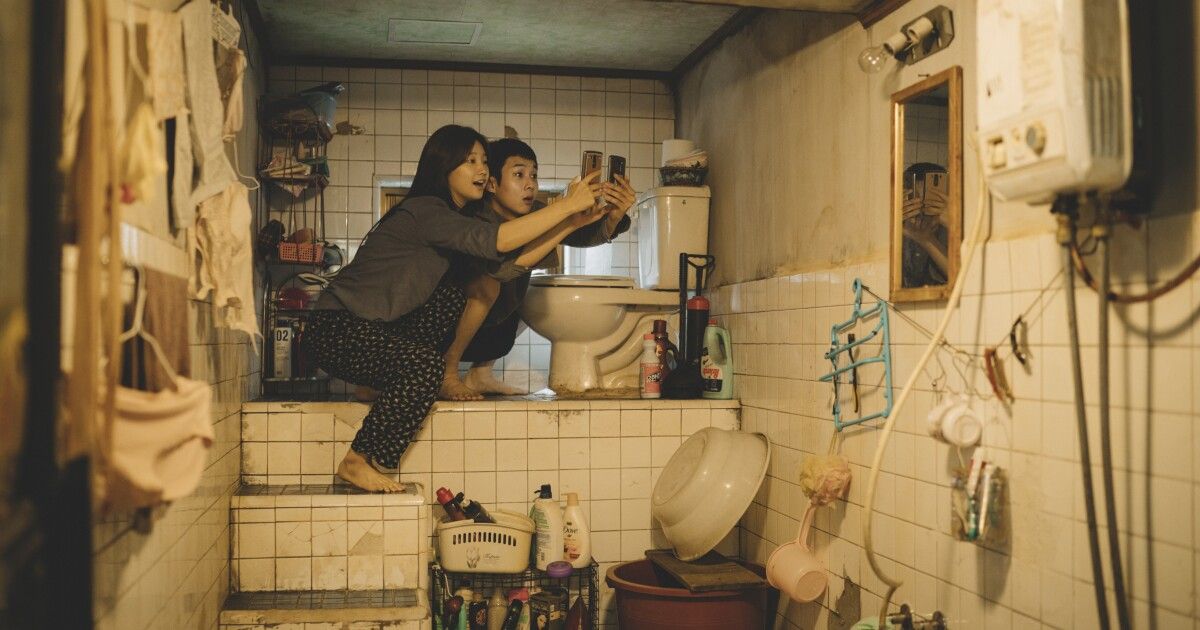Summary
- Bong Joon-ho’s films showcase his eclectic style and focus on social commentary, winning him multiple Oscars.
- Hitchcock’s influence is evident in Bong’s works, notably seen in the thriller Mother and the Oscar-winning Parasite.
- Bong’s obsession with stairs, inspired by Psycho, is a recurring motif in his films, symbolizing class dynamics.
Bong Joon-ho has established himself as one of the most eclectic and imaginative filmmakers of his generation through several genre-bending films, most notably Bong’s Oscar-winning 2019 black comedy thriller film Parasite, which serves as the ultimate testament to Bong’s distinctive narrative and visual style and his emphasis on social commentary. While Bong, who won three Academy Awards for Parasite, has established himself as a uniquely exciting and innovative filmmaker, Bong’s films also reflect a broad variety of cinematic influences. These span multiple eras and genres, from Orson Welles’ 1958 film noir Touch of Evil to Martin Scorsese’s 1980 biographical sports drama film Raging Bull and Kiyoshi Kurosawa’s 1997 Japanese psychological horror film Cure.
However, the most pervasive creative influence throughout Bong’s career is Alfred Hitchcock, whom Bong has referred to as being the most original filmmaker in history. While Bong seemingly admires all aspects of Hitchcock’s career and directorial approach, Bong’s favorite Hitchcock film is the iconic 1960 horror film Psycho, which has influenced, to varying degrees, all of Bong’s films, most notably Parasite and the 2009 neo-noir thriller Mother.
Bong Joon-Ho Has Seen Psycho More Than 50 Times
Psycho
- Release Date
- June 22, 1960
- Cast
- Anthony Perkins , Vera Miles , John Gavin , Martin Balsam , John McIntire , Simon Oakland
- Runtime
- 109
While all of Bong Joon-ho’s films, beginning with the 2000 black comedy film Barking Dogs Never Bite, contain narrative and visual cues from the films of Alfred Hitchcock, the influence of Hitchcock and Psycho is most clearly visible in Bong’s neo-noir thriller Mother, which, like Psycho, features a case of mistaken identity and revolves around an extremely unhealthy mother-son relationship. In Mother, an overbearing mother embarks on a ruthless journey to gain freedom for her mentally disabled son, who has been arrested for a schoolgirl’s murder. When the mother, a meek widow, encounters a man who claims to have witnessed the mother’s son kill said schoolgirl, she bludgeons the man with a wrench before he can call the police.
Just as Hitchcock subverted audience expectations by casting then-established Hollywood star Janet Leigh in the seemingly primary role of Marion Crane in Psycho, only to have Marion be killed midway through the film amid the most influential murder scene in film history, the titular role in Mother is played by Kim Hye-ja, a beloved actress from Bong’s native South Korea. Kim gained fame by playing archetypal, kindly mother figures in various television shows.
However, while Mother and Parasite are overtly connected to Psycho through Bong’s focus on the horror and psychological drama that can exist within the domestic environment and familial dynamic, Mother, like all of Bong’s films, is primarily distinguished as being a “Hitchcockian” film through Bong’s continual ability to create and maintain suspense and tension.

Best Performances in Bong Joon-ho Movies, Ranked
The genius South Korean filmmaker has a handful of great films under his name. With great movies, come great performances.
Psycho Provided Inspiration for Parasite
When Bong Joon-ho watched Psycho as a child, he was mesmerized by the sequence in the film in which private detective Milton Arbogast approaches and then enters the Bates House, behind the Bates Motel, specifically the overhead shot of Arbogast slowly ascending the house’s staircase before being violently confronted by a knife-wielding Norman Bates, in the guise of Norman’s long-dead mother.
Through the staircase scene in Psycho, Bong developed an obsession with stairs, which Bong saw as a metaphor for the class system in Bong’s native South Korea. This class theme and stair motif served as an inspiration for Bong’s Oscar-winning film Parasite, in which the poor, scamming Kim family tries to improve its standing by manipulating the wealthy Park family, whose luxurious and seemingly perfect house is infiltrated by the Kim family members, until a shocking discovery completely upends the audience’s perception of the film’s class dynamic.

Every Bong Joon-ho Movie, Ranked by Box Office Gross
You might be a Bong Joon-ho fan, but do you know how well each of his movies performed at the box office?
Many scenes in Parasite feature the appearance of stairs, ascending and descending steps, from those within the affluent Park family’s home to the various long staircases that are visible in and around Seoul, South Korea. Bong also incorporated the staircase motif into the film’s production design, in which the Park family’s ornate furniture serves to represent a symbol of how the staircase motif moves throughout the film.
Parasite demonstrates how Hitchcock’s influence has continually manifested itself throughout Bong’s career in strange and unexpected ways. Moreover, Bong’s fixation with the Bates house and the staircase motif reflects Bong’s overarching focus on class and setting in his films. From the harshly segregated super train in Snowpiercer to the poor and wealthy households in Parasite, Bong’s films invariably reflect a world in which society places the wealthy, figuratively and literally, high above the poor.
When Alfred Hitchcock died in 1980, many critics and historians lamented that Hitchcock’s iconic visual style hadn’t seemingly had a direct influence on many younger filmmakers, with the notable exception of Brian De Palma, who directed several Hitchcock pastiche films in the 1970s and 1980s and also incorporated Hitchcockian cues and principles in the big-budget studio films Mission: Impossible and The Untouchables.
However, while many of De Palma’s Hitchcock pastiche films, specifically Body Double, Dressed to Kill, Obsession, and Sisters, are explicitly derivative of Hitchcock’s films, Bong’s films have transcended mere imitation by essentially reinventing the thriller genre. Bong is most clearly linked to Hitchcock by Bong’s absolute mastery of the creation of suspense and his uncanny ability to create images that, in Bong’s words, speak for themselves.
Bong Joon-ho’s Favorite Films
|
Title |
Director |
Year of Release |
|---|---|---|
|
Touch of Evil |
Orson Welles |
1958 |
|
Psycho |
Alfred Hitchcock |
1960 |
|
The Housemaid |
Kim Ki-young |
1960 |
|
Raging Bull |
Martin Scorsese |
1980 |
|
Cure |
Kiyoshi Kurosawa |
1997 |
Stream Parasite on Max and rent Psycho on Apple TV.




